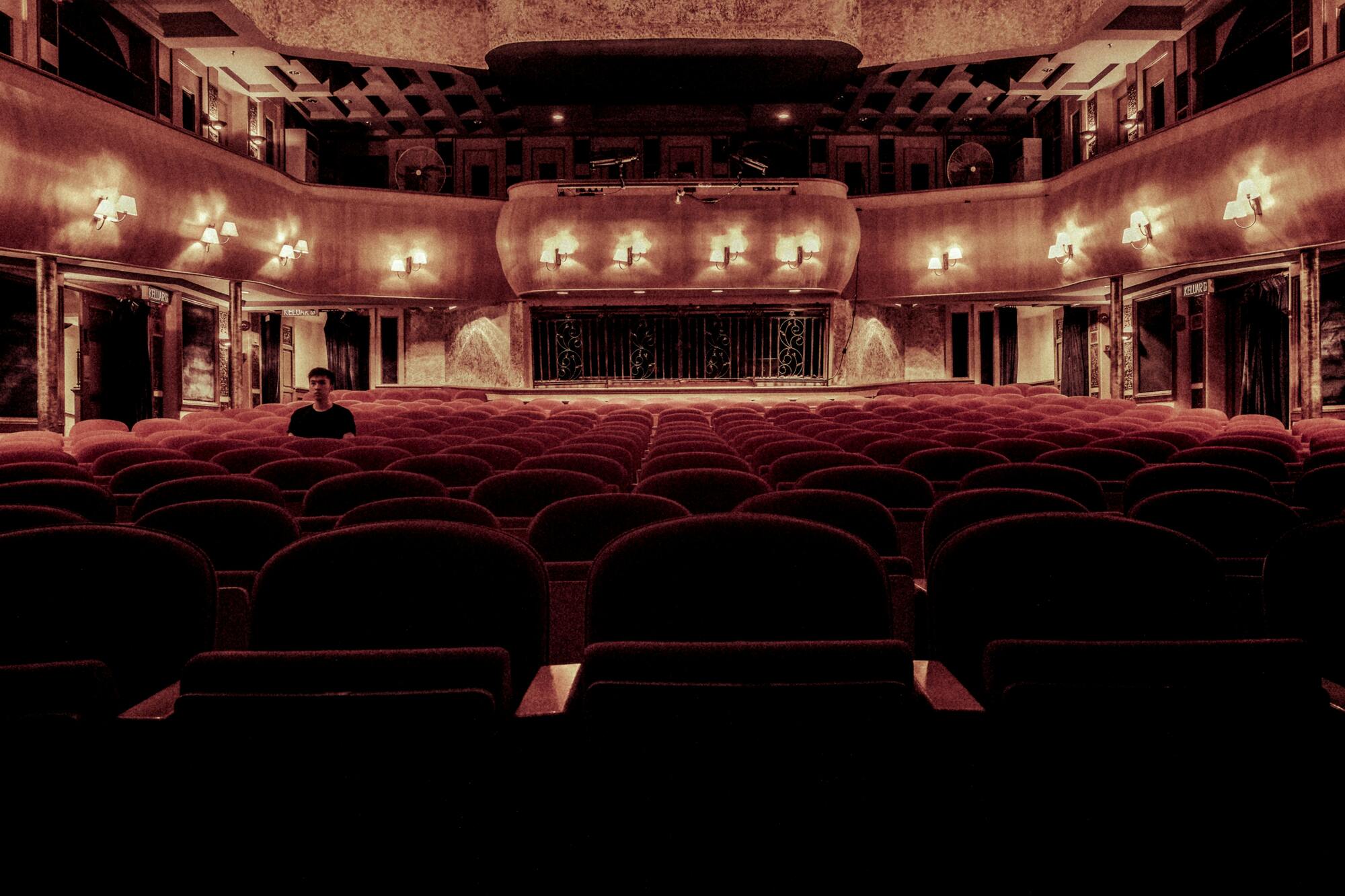
Wo ansehen In Transit: Report for Posterity in Deutschland
Revolution and resignation within the changes at the end of the GDR. Entdecke "In Transit: Report for Posterity", ein fesselndes dokumentarfilm film das erstmals im Jahr 1990 auf den Bildschirmen erschien. Diese Produktion, die aus Deutschland stammt.
Sehen Sie "In Transit: Report for Posterity" jetzt auf filmfriend und GuideDoc und entdecken Sie noch mehr Möglichkeiten, in Ihre Lieblings-film mit dem ultimativen Streaming-Guide von Popcorn Time einzutauchen.
Es gibt 1 weitere externe Anbieter. Sie können die vollständige Liste wo anschauen In Transit: Report for Posterity einsehen.
In Transit: Report for Posterity belegt heute Platz #50814 in den Popcorn Time Streaming Charts in Deutschland. Der Film hat seit gestern um 5 Plätze verloren.

Das Bewertungssystem von Popcorn Time berechnet die Beliebtheit durch die Kombination von Daten aus mehreren vertrauenswürdigen Quellen, einschließlich Streaming-Plattformen, Peer-to-Peer-Trends und globalen Datenbanken.
Unser Algorithmus passt die Rankings dynamisch an, basierend darauf, wie Inhalte auf verschiedenen Plattformen, in verschiedenen Regionen und Zeitrahmen abschneiden. Jeder Film oder jede Serie wird anhand einer Kombination aus globaler Position, regionaler Beliebtheit und historischer Leistung bewertet. Dies gewährleistet eine faire, genaue und ständig aktualisierte Darstellung dessen, was gerade in Deutschland im Trend liegt.
Erkunde noch mehr Streaming-Optionen für In Transit: Report for Posterity!
Entdecken Sie, wie Sie In Transit: Report for Posterity auf verschiedenen Plattformen und in mehreren Ländern ansehen können! Egal, ob Sie zu Hause sind oder im Ausland reisen, es war noch nie einfacher, herauszufinden, wo Sie legal streamen können. Von , In Transit: Report for Posterity ist auf führenden Diensten wie verfügbar. In 6 weiteren Ländern verfügbar, können Sie maßgeschneiderte Streaming-Optionen erkunden, die den lokalen Lizenzbestimmungen entsprechen und ein problemloses und legales Seherlebnis gewährleisten.
Mehr Infos
- Laufzeit
- 90 Minuten
- Veröffentlicht
- Ursprungsland
- Deutschland
- Sprachen
- de
- Untertitel
- en
Ähnlich wie In Transit: Report for Posterity

Film
In early summer 1989, Helke Misselwitz portrays young musicians in a band who produce their music on other people’s waste items. The four boys call themselves "Bulk Rubbish" and they drum out their resentment, having grown up on the new housing estates of East Berlin. A straight-up picture of the GDR youth is presented here, which in no way conforms to the official image. The film crew concentrates on the observation of the boy Enrico and his mother Erika: when the mother marries in the West, her son decides to stay in East Berlin, bidding her farewell at the border-crossing. Only shortly after, the tables are turned again: as the events in Berlin leading up to the fall of the Wall are practically captured live from the film crew, Enrico insists on maintaining his cultural identity, even after the fall of the Wall. The "Bulk Rubbish" musicians want to remain citizens of their own state and perceive the looming reunification with scepticism.
Bulky Trash (1991 )

Film
Eisenzeit ist ein Projekt aus den Anfängen der 80er Jahre und konnte zum damaligen Zeitpunkt aus politischen Gründen nicht realisiert werden. Der Film berichtet über vier Jugenliche und deren Schwierigkeiten mit dem Staat, der Gesellschaft und ihren Familien im letzten Jahrzehnt vor der Wende.
Eisenzeit (1991 )

Film
Journalist Daniela Dahn interviews the East-German author Christa Wolf during the German reunification: reflections on history, changing politics, life and work.
Time Loops - A Conversation with Christa Wolf (1991 )

Film
Director Bernd Sahling documents almost four years in the life of a young man who experienced two political systems, East and West Germany, and cannot fulfill his dreams in either of them.
It'll Be Okay (1991 )

Film
The film explores what transformations in power and politics do to art, how much opportunism can be found in “pure” art and whether fascist symbols can ever regain their aesthetic innocence. The questions it addresses about the relationship between ethics and aesthetics make a valuable contribution to any discussion about art and power.
Time of the Gods (1992 )

Film
Interview with Jochen Girke, a retired East German Stasi agent, filmed March, 1990 to June, 1991. Questions explore his study of psychology for use as a filmmaker and trainer of interrogators and informers. Segments include conversations with his parents, teacher, former girlfriend and wife.
Der schwarze Kasten (1992 )

Film
Dieser schwarz-weiß Dokumentarfilm berichtet über die Zeit nach dem Aufbegehren in der DDR und von der Wahlkampfkundgebung vom 14.3.1990 die unter dem Motto "Allianz für Deutschland" Helmut Kohl als Hauptredner hatte. Die eingefangenen Gespräche der Straßenfeger und Beobachtungen in den Nachtstunden in der Leipziger Innenstadt vermitteln einem die ganze Hoffnungslosigkeit der entstandenen Situation. Eindrucksvolle Kamerabilder in einer fast dunklen Umgebung zeigen die Reaktionen der Enttäuschten und Gestrauchelten, aber auch die Hoffnungen die von diesem politischen Wechsel geweckt werden. Die Straßenfeger bringen mit ihren Gesten und Kommentaren symbolhaft die ganze Sinnlosigkeit ihrer Tätigkeit und ihres gebrochenen Selbstbewußtseins dem Zuschauer näher. Die Dokumentation kommt völlig ohne Kommentar aus, nur einige Reporterfragen bringen die Interviewpartner dazu, ausführlich ihre Lebenssituation zu schildern.
Kehraus (1990 )

Film
Despite seeing his film project HERCULES rejected by DEFA Studios in 1983-84, Dammbeck remained fascinated by the Hercules story. He started experimenting with different media combinations, using overpainting, photography, film clips, collage, painting, and movement. These experiments resulted in groundbreaking multimedia collaborations, as well as the film THE CAVE OF HERCULES, in which Dammbeck explores a series of questions inspired by this classical figure. Who was the legendary hero Hercules? Is there a new Hercules today? How are heroes created in a totalitarian society? What are the virtues of heroes? This multi-layered experimental film combines projections of collected film clips, quotations from “The Willful Child” by the Brothers Grimm, and “Hercules 2 or the Hydra” by Heiner Müller, as well as dance scenes with Eva Schmale that were performed – at Kampnagel in Hamburg – specifically for the film.
The Cave of Hercules (1990 )







